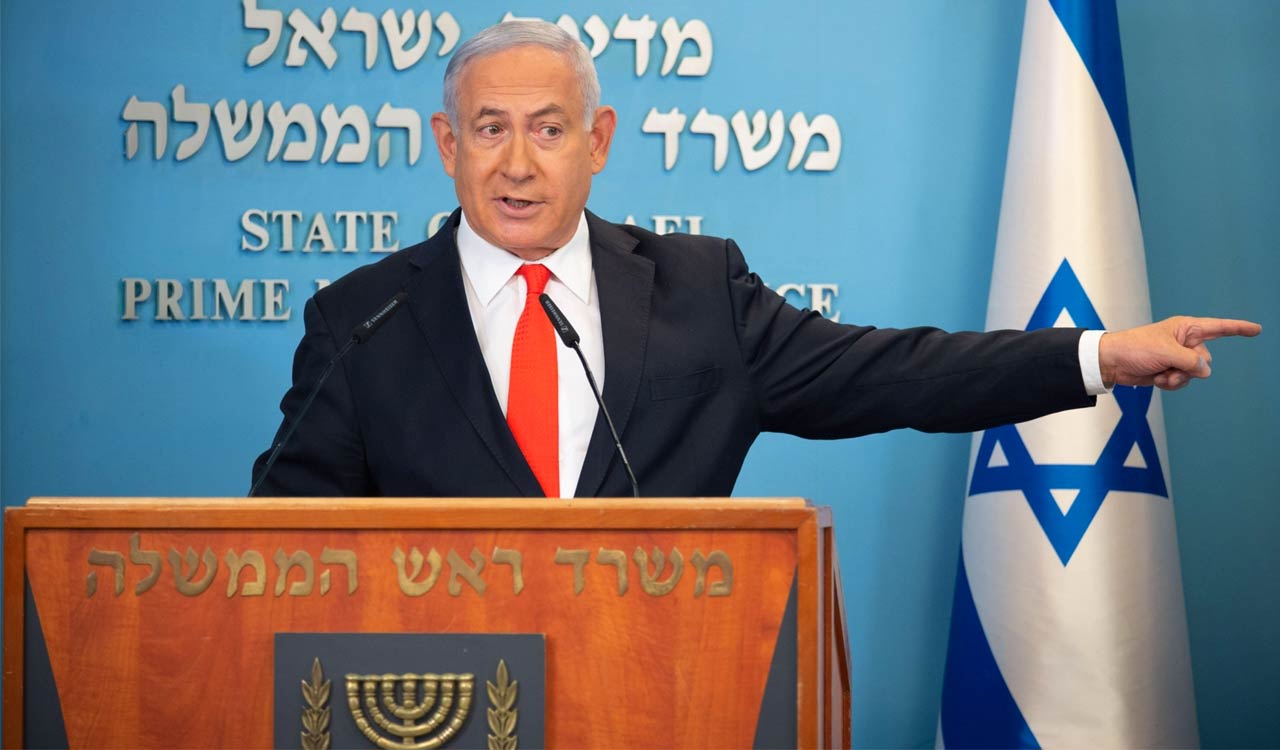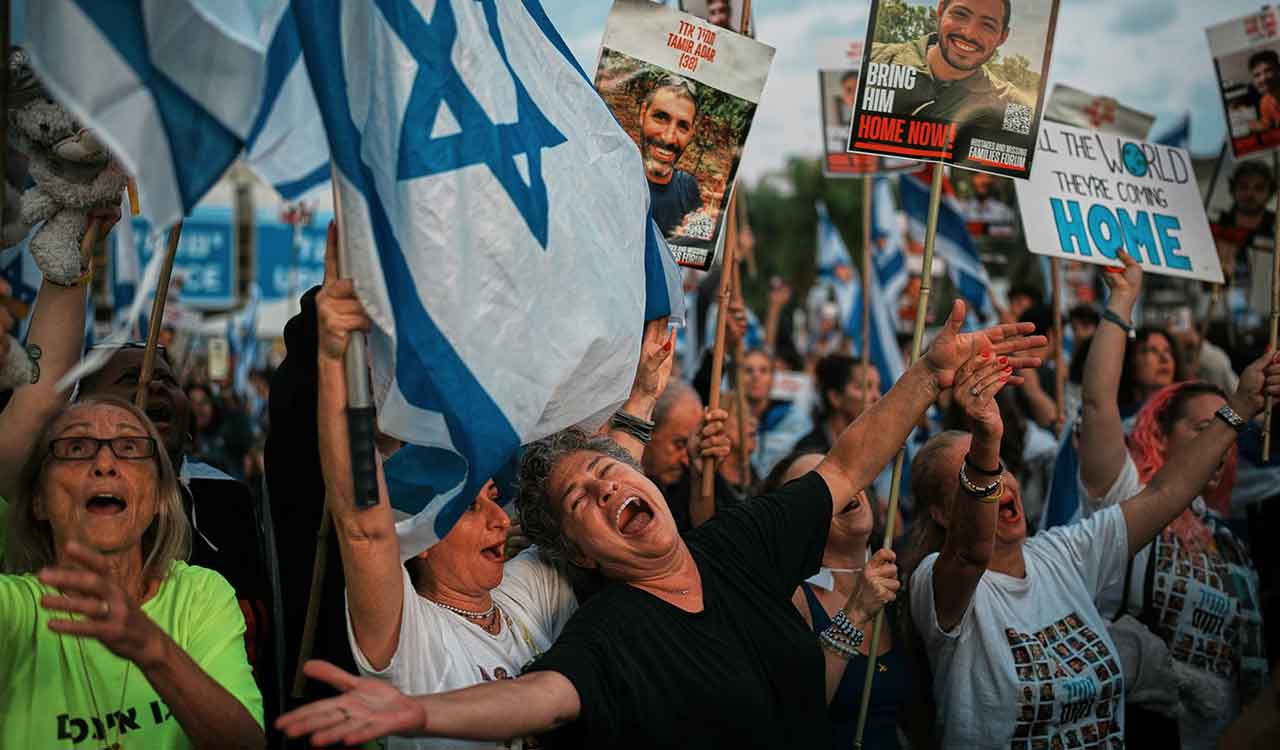Opinion: Testing limits of international justice
The ICC depends on its member states to enforce its actions and has no independent police force or ability to execute arrest warrants

By Amy Maguire
Karim Khan, chief prosecutor of the International Criminal Court (ICC), has asked the judges of this body to issue arrest warrants for crimes against humanity and war crimes against Yahya Sinwar (head of Hamas in Gaza), Mohammed Diab Ibrahim Al-Masri (also known as Mohammed Deif, commander of Hamas’ military wing) and Ismail Haniyeh (head of Hamas’ political bureau, based in Qatar), for crimes committed in Israeli and Palestinian territory since at least October 7 of 2023.
Khan has also requested arrest warrants against Israeli Prime Minister Benjamin Netanyahu and Defence Minister Yoav Gallant for the same crimes, committed in the Gaza Strip since October 8, 2023. The petition is an important step in the effort to bring justice to victims of international crimes in Israel and Palestine.
The Accused
Sinwar, Al-Masri and Haniyeh are accused of participating in the attacks on Israeli civilians on October 7, in which some 1,200 Israeli civilians were killed and at least 245 taken hostage. In addition, Hamas leaders are accused of other crimes in the context of the ongoing conflict in Gaza. These include extermination, murder, hostage-taking, rape, cruel treatment and torture.
In his statement, Khan noted: “I have seen the devastating scenes of these attacks and the profound impact of the unconscionable crimes alleged in the applications filed. Speaking to survivors, I have heard how the love within a family, the deepest bonds between a parent and child, were translated into unfathomable pain through calculated cruelty and extreme callousness. These acts demand responsibilities.”
Khan also explained that his office carried out extensive investigations, including field visits and interviews with survivors of the victims, and relied on evidence regarding the appalling conditions in which Israeli hostages have been held in Gaza. Netanyahu and Gallant are alleged criminally responsible for a series of international crimes since Israel launched its military action against Hamas in Gaza on October 8, including starvation of civilians as a method of war, intentionally causing great suffering, intentional attacks against the civilian population, extermination and/or murder, and persecution.
The prosecutor stated that the alleged crimes: “…were committed as part of a widespread and systematic attack against the Palestinian civilian population. These crimes, in our assessment, continue to this day.”
Pointing to the terrible suffering of civilians in Gaza, including tens of thousands of casualties and catastrophic hunger, Khan alleged that the means Netanyahu and Gallant chose to pursue Israel’s military objectives in Gaza (intentionally causing death, starvation, great suffering and serious damage to the body or health of the civilian population) are criminal.
What does this mean
The next step in this process is for three judges of the ICC Pre-Trial Chamber to decide whether there are reasonable grounds to believe that war crimes and crimes against humanity have been committed. If so, arrest warrants will be issued. It can take months for judges to make a decision.
However, if arrest warrants are issued, it is highly unlikely that they will be executed. And if none of the accused can be arrested, there will be no trial because the International Criminal Court does not try people in absentia. So why are the accused unlikely to be arrested? There are many reasons.
First, none will turn themselves in for prosecution. Netanyahu was outraged by Khan’s decision, calling it a “moral outrage of historic proportions” and accusing him of anti-Semitism. Hamas has issued a statement strongly denouncing the issuance of arrest warrants against its leaders, claiming that it equates “the victim with the executioner.”
Second, none of the accused is likely to be placed in a position to be arrested and handed over to the ICC. Israel did not sign the Rome Statute that established the ICC. Neither does its main ally, the United States. This would ensure that Netanyahu and Gallant could travel to the United States without fear of arrest.
Neither Israel nor the US sign the Rome Statute that established the ICC. This would ensure that Netanyahu and Gallant could travel to the US without fear of arrest
For his part, Haniyeh is based in Qatar, which is also not a member of the ICC. You may have to limit your travel to other countries to avoid the risk of detention. The other two accused Hamas leaders are believed to be hiding in Gaza; They appear to be at greater risk of being killed by Israeli forces than of being detained. Although Palestine is a member state of the ICC and is, therefore, technically obliged to cooperate with the court, in practice it is difficult for this to happen.
Third, the ICC depends on its member states to enforce its actions. It has no independent police force or the ability to execute arrest warrants. The ICC has 124 states while the United Nations has 193 member states. This disparity makes clear the gap between what the ICC aims to achieve – namely, universal accountability for international crimes – and what it can achieve in practice when it lacks the support of involved or non-aligned countries.
Importance of ICC
It is the first time that the prosecution has brought charges against a head of state who has the support of Western countries. The measure provoked a predictable response from the United States. President Joe Biden called it “outrageous” and added: “…there is no possible equivalence between Israel and Hamas: we will always support Israel against threats to its security.”
But Khan stressed the importance of the ICC’s independence and impartiality, as well as equality in the application of the law. “No common soldier, no commander, no civilian leader, no one can act with impunity.” The ICC has previously confirmed its jurisdiction over the crimes allegedly committed by the five leaders. The prosecutor relies on the Pre-Trial Chamber to issue arrest warrants based on the highly visible nature of the alleged crimes and the volume of evidence available to demonstrate that there are reasonable grounds for prosecution.
The request for arrest warrants undoubtedly complicates relations between Israel and its allied ICC members. In such a politically charged context, it is fair to describe this effort as evidence of the international community’s commitment to ending impunity for international crimes.

(The author is Associate Professor in Human Rights and International Law, University of Newcastle. theconversation.com)
Related News
-
Opinion: The peril of bluster politics — India’s silence on Palestine signals a dangerous drift
-
Gaza ceasefire under strain as Israel, Hamas trade fire in Rafah
-
Netanyahu plans to run for PM again in Israel’s 2026 elections
-
Israel says Hamas hands over first seven hostages to Red Cross as part of Gaza ceasefire
-
Andhra horror: Suspect in minor girl’s rape, murder found dead
2 mins ago -
Bandh observed in Kyathanpalli; heavy police deployment at Balka Suman’s residence
4 mins ago -
Four children suffer burns after drum filled with chemicals explode in Bengal’s Canning
10 mins ago -
PM Modi set to visit TN twice in March as NDA gears up for Assembly polls
11 mins ago -
Hyderabad: Christians observe Ash Wednesday with solemn masses
11 mins ago -
Three cheetah cubs born at Kuno National Park, India now has 38 of them
26 mins ago -
Adivasis’ Self-Confidence: The Transformational Legacy of Potlapally Kamala Manohar Rao
15 mins ago -
After four years in hiding, PFI man nabbed by NIA at Kochi Airport
32 mins ago




